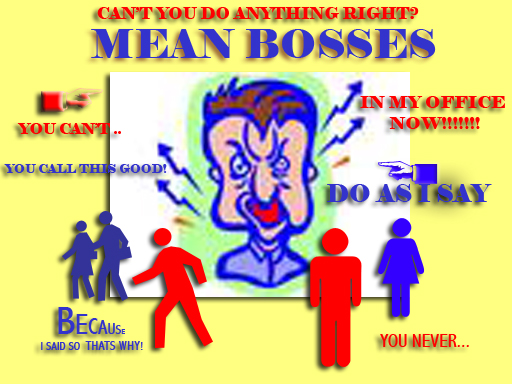Tuesday, January 25, 2011
Characteristics of great leaders
Throughout my career, like anyone else I have had both good and bad bosses. Today, I will share a few characteristics of the good ones...

Sometimes, a boss suffers from power poisoning. They become selfish and oblivious to those around them. They have the ability to insulate and protect those below them, but otherwise choose not to. The best of bosses serve as a metaphorical condom and is savage in protecting their people especially in situations where perception management has gone awry.
Enterprise architecture when practiced correctly does require not only the positive aspects of championing ideas that lead to sustained competitive advantage but also attempting to destroy ideas that can lead an organization in the wrong direction. When an enterprise architect strives to be a steward of the enterprise, others may frequently take his/her actions as personal attacks. Protection of people at this stage is vital not just for the individual but the overall success of the organization.

At the time you make a decision, no one knows whether it is right or wrong. But research shows that if you, as the authority figure, act confident about implementing the decision, it increases the odds of success. If you lack confidence, people will be less committed to your decision. They have less faith in you as a leader.
A leader will champion your ideas and help amplify them in order to increase the potential for success. Those who are simply managers, may see this as an opportunity to be an emotional vampire.

Have you ever ran across employees who love being martyrs for their abusive bosses. People who, if they didn't have their boss to complain about, wouldn't know what to do with themselves. But in the end, even people who are masochists are going to suffer all kinds of physical and emotional health issues if they stay in a toxic environment.
The best of leaders are thoughtful not just about delivery of work products, but the physical and emotional health of their employees. Many haven't thought about this as just a casual observation, but as a deliberate action to improve. Some have encouraged employees to get out of the office and to do meetings outside when the weather is nice while others encourage employees to take walks while meeting with others.
There are probably other characteristics I am not thinking off, but these are at the top of my mind right now...

| | View blog reactions
Sometimes, a boss suffers from power poisoning. They become selfish and oblivious to those around them. They have the ability to insulate and protect those below them, but otherwise choose not to. The best of bosses serve as a metaphorical condom and is savage in protecting their people especially in situations where perception management has gone awry.
Enterprise architecture when practiced correctly does require not only the positive aspects of championing ideas that lead to sustained competitive advantage but also attempting to destroy ideas that can lead an organization in the wrong direction. When an enterprise architect strives to be a steward of the enterprise, others may frequently take his/her actions as personal attacks. Protection of people at this stage is vital not just for the individual but the overall success of the organization.

At the time you make a decision, no one knows whether it is right or wrong. But research shows that if you, as the authority figure, act confident about implementing the decision, it increases the odds of success. If you lack confidence, people will be less committed to your decision. They have less faith in you as a leader.
A leader will champion your ideas and help amplify them in order to increase the potential for success. Those who are simply managers, may see this as an opportunity to be an emotional vampire.

Have you ever ran across employees who love being martyrs for their abusive bosses. People who, if they didn't have their boss to complain about, wouldn't know what to do with themselves. But in the end, even people who are masochists are going to suffer all kinds of physical and emotional health issues if they stay in a toxic environment.
The best of leaders are thoughtful not just about delivery of work products, but the physical and emotional health of their employees. Many haven't thought about this as just a casual observation, but as a deliberate action to improve. Some have encouraged employees to get out of the office and to do meetings outside when the weather is nice while others encourage employees to take walks while meeting with others.
There are probably other characteristics I am not thinking off, but these are at the top of my mind right now...




